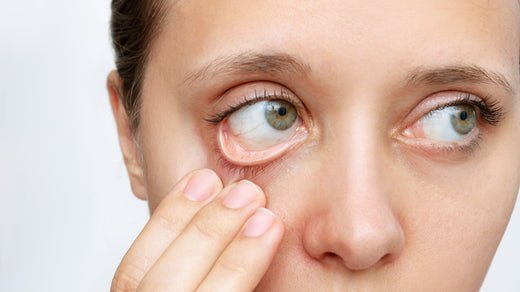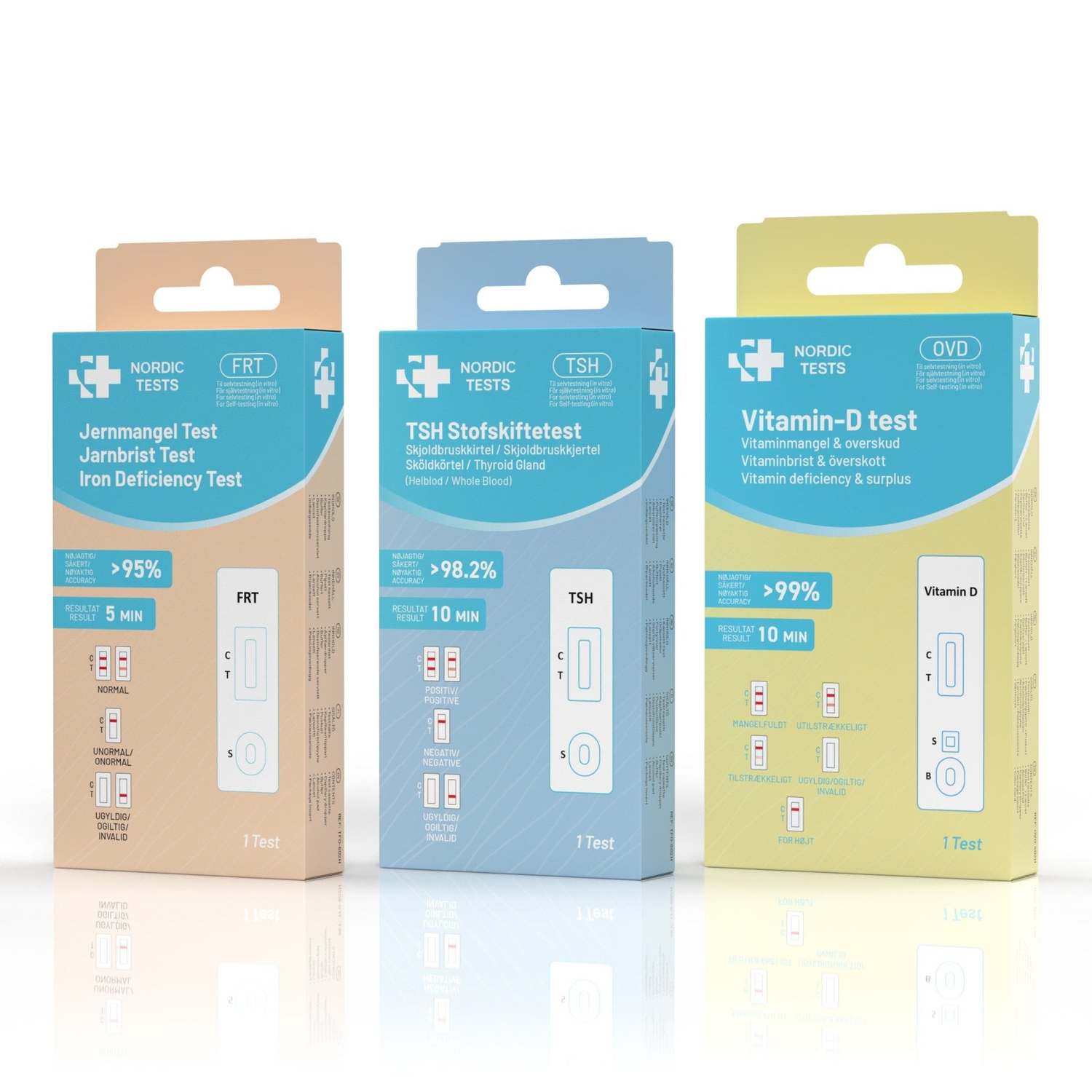
Iron deficiency: Symptoms, signs and treatment
Iron deficiency is one of the most common nutritional deficiencies and can affect both men and women. It occurs when the body does not have enough iron to produce sufficient haemoglobin, which can lead to fatigue and a weakened immune system. This article covers the most common iron deficiency symptoms, how to recognise signs of iron deficiency, and what options exist for iron deficiency treatment.
Hvad er symptomerne på jernmangel?
Iron deficiency symptoms can range from mild to more severe, depending on how pronounced the deficiency is. Common symptoms include:
- Tiredness and weakness.
- Pale skin and cold hands or feet.
- Iron deficiency symptoms in women: Increased fatigue and dizziness, especially during menstruation.
- Iron deficiency itching: Skin irritation and dryness can be a sign of low iron levels.
- Headaches and difficulty concentrating.
- Iron deficiency symptoms eyes: Paleness of the inner eyelid can indicate low iron levels.
If you experience these symptoms, a blood test can help confirm whether you are suffering from iron deficiency.
Signs of iron deficiency and physical symptoms
In addition to the general symptoms, iron deficiency can lead to:
- Iron deficiency sore muscles: Muscle pain and reduced physical endurance.
- Brittle or split nails.
- Increased risk of infections.
- Heart palpitations or shortness of breath with light physical activity.
It is important to be aware of these signs of iron deficiency, as they can worsen if the condition is not treated.
What causes iron deficiency?
Iron deficiency can be caused by a number of factors, including:
- Insufficient intake of iron-rich foods.
- Blood loss, e.g. from menstruation or stomach ulcers.
- Reduced ability to absorb iron, e.g. due to gastrointestinal diseases.
Women, especially those with heavy menstrual bleeding, are particularly susceptible to iron deficiency symptoms in women, making it important to monitor their iron levels.
Treatment of iron deficiency
Iron deficiency treatment depends on the cause of the deficiency. Options include:
- Dietary changes to include iron-rich foods such as red meat, spinach and legumes.
- Iron supplements as recommended by your doctor.
- Treatment of underlying causes, such as heavy menstrual bleeding.
It is important to follow your doctor’s recommendations to avoid side effects from excessive iron intake.
Frequently asked questions
- What are the symptoms of iron deficiency? – Iron deficiency symptoms include fatigue, headaches and pale skin.
- Can iron deficiency cause muscle pain? – Yes, iron deficiency sore muscles is a common sign.
- What are signs of iron deficiency in the eyes? – Iron deficiency eye symptoms can present as paleness of the inner eyelid.
- How is iron deficiency treated? – Treatment for iron deficiency includes supplements and iron-rich foods.

